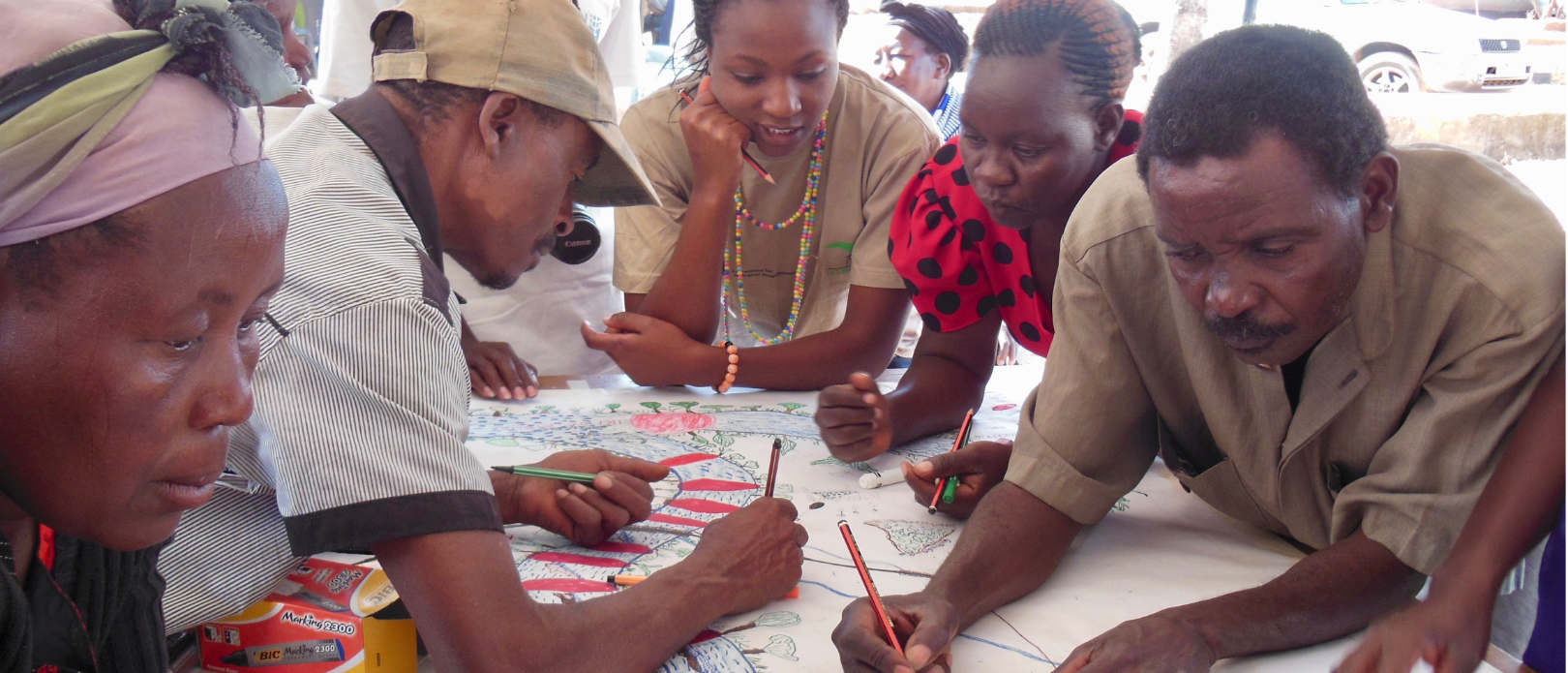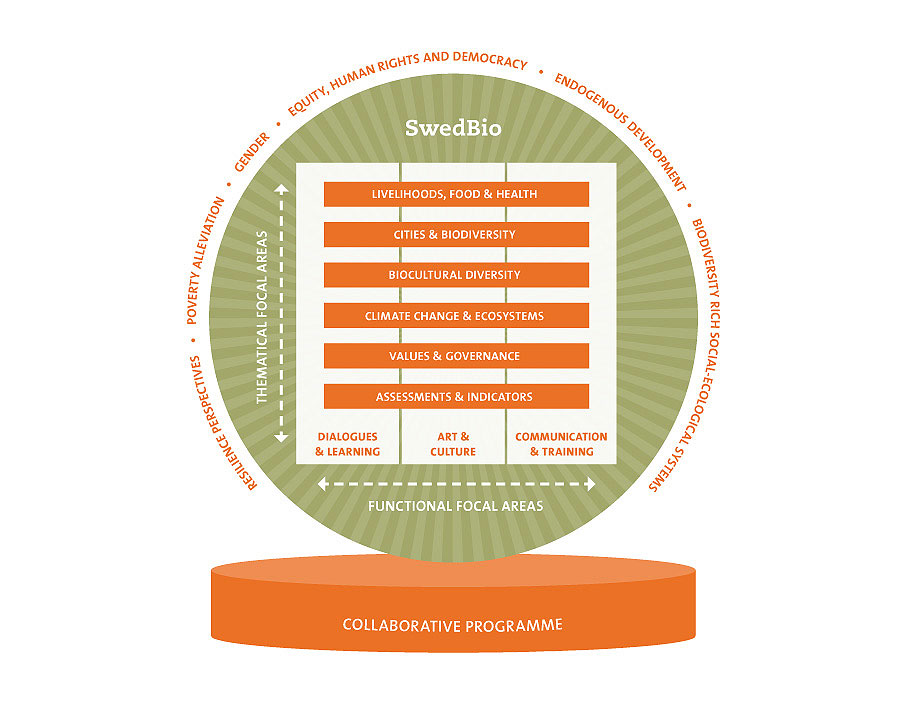SwedBio

Photo: P. Malmer
SwedBio is a knowledge interface at Stockholm Resilience Centre contributing to poverty alleviation, equity, sustainable livelihoods and social-ecological systems rich in biodiversity. SwedBio enables knowledge generation, dialogue and exchange between practitioners, policy makers and scientists for development and implementation of policies and methods at multiple scales
SwedBio works with two interlinked components: 1) Knowledge Interface, and 2) Collaborative Programme.
In its knowledge interface role, SwedBio collaborates with a broad spectrum of partners with the aim to facilitate connections across knowledge systems and cultures, such as local, indigenous, policy makers and scientific knowledge, and between diverse actors such as practitioners, policy makers and scientists. The intention is to contribute to improved understanding, knowledge generation, management and good governance of social-ecological systems.
In the Collaborative Programme SwedBio contributes to a limited number of organisations and strategic initiatives in developing countries (low income countries and least developed countries) working on issues related to our objectives.
Together with partners, SwedBio has organised a number of multi-actor dialogues, which have contributed to important international policy and practice processes – all of which have relevance for developing countries.
To read more about Swedbio, visit their website
SwedBio is funded by the Swedish International Development Cooperation Agency, Sida.

SwedBio’s focal areas: SwedBio contribute to a number of policy, practice, science and methods development processes with a focus on six themes, or Thematic Focal Areas. Within all these themes three different approaches, or Functional Focal Areas, are applied. There are also a number of perspectives, or Cross-cutting issues, that underpin all SwedBio’s operations.






